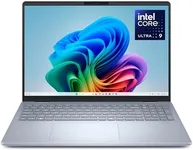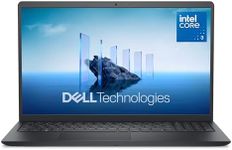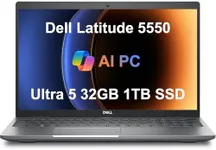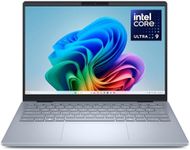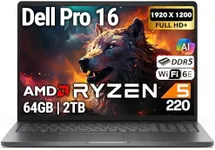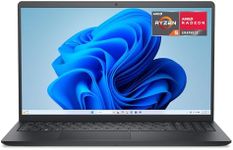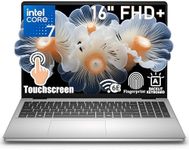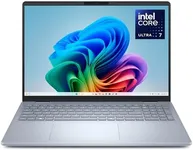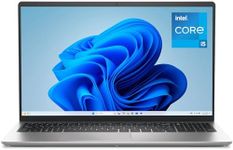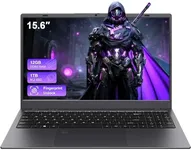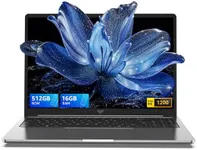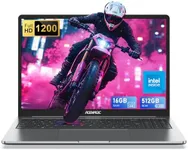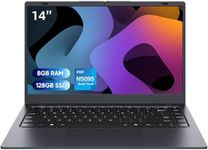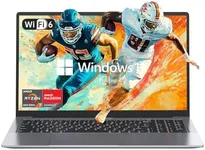Buying Guide for the Best Dell Laptops
Choosing a Dell laptop is all about matching your needs to the features and specifications available. With a wide range of options, Dell offers models geared toward students, professionals, gamers, and home users. The most important thing is to understand what you'll be using the laptop for, as this will help narrow down which specifications are essential and which features are merely nice to have. By knowing yourself as a user, you can avoid paying for unused power or ending up with a device that falls short of your day-to-day requirements.Processor (CPU)The processor is a critical component that determines how quickly your laptop can perform tasks. For everyday activities like browsing, email, or document editing, an entry-level or mid-range processor is often sufficient. High-performance laptops with more powerful CPUs are better suited for heavy multitasking, content creation, or gaming. If you want a laptop mainly for basic tasks, look for models with entry-level processors; if you plan to use demanding software or want your machine to last longer as software requirements grow, consider mid-range or high-end processors.
Memory (RAM)Memory, or RAM, affects your ability to smoothly run multiple programs at once. Basic tasks and casual use require less RAM, while tasks such as photo/video editing or heavy multitasking require more. Laptops typically range from 4GB to 32GB of RAM. For everyday users, 8GB is a balanced choice, while 16GB or more is recommended for power users or professionals running intensive applications.
Storage (HDD/SSD)Storage determines how much data, files, and programs you can keep on your laptop. More important than size is the type: SSDs (solid-state drives) are much faster than traditional HDDs, making your system feel quicker and starting applications faster. If you store lots of videos, photos, or large projects, higher capacity is important. For most users, a 256GB or 512GB SSD is sufficient, but if you work with large files regularly, go for more.
Display Size and TypeThe display size affects portability and your viewing experience. Smaller screens (13-14 inches) mean a lighter, more portable laptop, good for frequent travelers or students. Larger screens (15-17 inches) are better for multitasking and media consumption but are heavier and less portable. Display quality—measured by resolution (HD, Full HD, 4K)—impacts clarity. Full HD (1920x1080) is a good baseline for most users. If you edit photos/videos or want sharper visuals, consider higher resolutions or enhanced color panels.
Battery LifeBattery life measures how long your laptop can run without needing a charge. If you plan on being away from power outlets—like at school, in meetings, or during travel—look for laptops known for long battery life. Laptops with bigger batteries typically last longer, but heavy-duty models or high-resolution screens may drain power faster. For mostly desk use, it’s less critical, but portability-focused users should prioritize longer battery performance.
Build Quality and PortabilityBuild quality includes materials, design, and sturdiness. Metal bodies are generally more durable than plastic and offer a premium feel. Portability depends on weight and thickness—lighter and thinner laptops are easier to carry. If you move around a lot or travel for work or study, prioritize these aspects. If your laptop stays mostly at your desk, a heavier or larger build isn’t a dealbreaker.
Ports and ConnectivityPorts allow you to connect other devices, such as USB drives, monitors, or headphones. Consider how many and which types of devices you’ll want to connect—if you present with projectors, use multiple monitors, or need SD card slots, check the available ports. Wireless features like Wi-Fi 6 or Bluetooth can also improve connectivity. Think about your setup and make sure the laptop covers your routine needs.
Keyboard and TouchpadSince you interact with these components daily, their quality is crucial for comfort and productivity. If you type a lot, look for a comfortable, tactile keyboard, possibly with backlighting if you work in low light. A responsive, accurate touchpad also makes navigation easier, especially if you aren’t using an external mouse frequently. Test these features if possible, or look out for reviews mentioning user experience.
Special FeaturesSome Dell laptops offer features like fingerprint readers, webcams with privacy shutters, touchscreen capability, or 2-in-1 convertibility (switching between laptop and tablet mode). Decide which of these add real value to your personal or professional needs—like improved security, video call quality, or flexibility in use—rather than simply choosing the model with the most bells and whistles.
